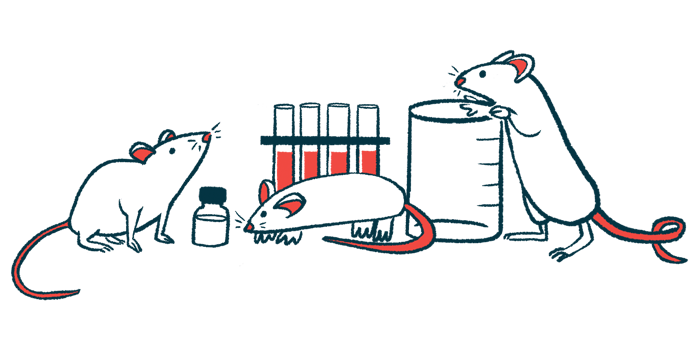Use of ultrasound in PAH may help in reducing inflammation: Study
Noninvasive intervention helps target nerve in spleen in PAH rat models

A noninvasive intervention that makes use of ultrasound to target the splenic nerve — a nerve in the spleen, an organ in which immune cells develop — was found to reduce inflammation and the severity of pulmonary arterial hypertension (PAH) in rat models of the disease, according to a new study.
The researchers say such use of ultrasound procedures may make for a new strategy for the treatment of pulmonary hypertension.
“Our splenic-focused ultrasound stimulation research suggests a novel and promising approach for reducing inflammation and managing pulmonary hypertension,” Stavros Zanos, MD, PhD, co-author of the study at the Feinstein Institutes for Medical Research, said in a press release.
“With further preclinical investigations and clinical studies, focused ultrasound, alongside other bioelectronic medicine approaches, could become a viable treatment option for clinicians and patients,” Zanos said.
The study, “Ultrasound Neuromodulation of an Anti-Inflammatory Pathway at the Spleen Improves Experimental Pulmonary Hypertension,” was published in Circulation Research.
[recommended-research id=83084]
Pressure in main vessel reduced 25%-30% with use of ultrasound therapy
Pulmonary arterial hypertension, or PAH for short, is marked by narrowing of the vessels that carry blood through the lungs, which puts strain on the heart. Runaway inflammation is known to play a role in driving PAH progression. However, there are no available treatments that work by targeting inflammation.
In this study, researchers used ultrasound directed at the spleen to help reduce PAH-driving inflammation. The spleen is one of the major organs in the body where immune cells develop and grow. It is innervated by a nerve, called the splenic nerve, which connects the spleen to the brain.
The researchers had previously found that the use of ultrasound could be deployed as part of a strategy to modulate the activity of this nerve, which changes the activity of immune cells and ultimately reduces inflammation.
Now, the team tested this technique in two rat models of PAH, in which disease was induced by exposure to different toxic chemicals. Then, the animals received 12-minute-long daily sessions of focused ultrasound stimulation of the spleen (sFUS) or a sham procedure, for a total of 14 days.
In both models, the ultrasound-based approach reduced the abnormal growth of blood vessel cell walls that characterizes PAH. Right ventricular systolic pressure, a measure of the pressure in the main vessel that carries blood from the heart to the lungs, also was reduced by 25% to 30% by the ultrasound therapy.
Data from the experiments also indicated that sFUS led to a reduction in inflammatory immune cells, as expected.
“Mechanistically, sFUS normalizes immune cell populations in the spleen and downregulates inflammatory genes and pathways in the lung, many of which are relevant in human disease,” the researchers wrote in the study abstract.
This is the first study showing the effectiveness of a noninvasive ultrasound treatment targeting the spleen as a possible therapy for pulmonary arterial hypertension.
The team also found that completely blocking or destroying the splenic nerve made pulmonary hypertension worse in these models, which further supports the idea that this nerve helps regulate PAH-driving inflammation.
All in all, this approach appears promising based on the early data from lab models, though the researchers stressed that further work is needed to bring this approach toward clinical testing.
“This is the first study showing the effectiveness of a noninvasive ultrasound treatment targeting the spleen as a possible therapy for pulmonary arterial hypertension,” said Kevin J. Tracey, MD, president and CEO of the Feinstein Institutes, who was not directly involved with this study but helped pioneer the technique of using spleen-focused ultrasound to modulate inflammation.
Tracey added that the study “highlights the importance to continue producing knowledge about bioelectronic medicine’s potential to treat this condition and other inflammatory diseases.”







